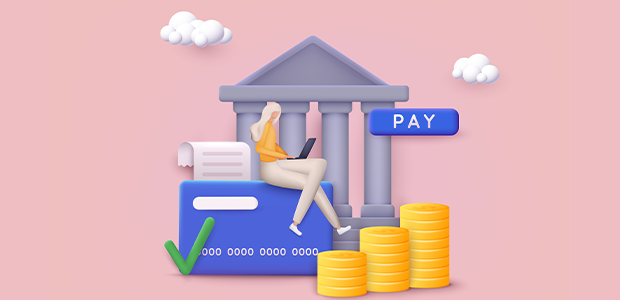
How fintech startups can address key pain points in the creator economy
The creator economy is a comparatively new phenomenon that has already experienced rapid development. With the growing recognition of content creation as a profession, the creator economy will develop even faster. As of 2024, it is valued at nearly $160 billion and is projected to grow fivefold by 2030.
Being a very dynamic and thriving field, the creator economy creates the demand for fintech solutions. Since content monetisation is an important but complicated question, fintech projects can offer products to address the problem of funds flow. In this article, we will explore how fintech startups can help manage the finances of the creator economy.
The Growing Need for Fintech Solutions
When we talk about the influencer economy, we are speaking mostly about young people. Unfortunately, young creators must face the real world of finance, which is still relatively “old school”. Wherever money is concerned, stricter rules apply, such as account opening requirements, AML, and compliance with a number of frequently changing rules. Moreover, the content creator industry they work in is primarily unregulated, adding another layer of challenges.
Imagine a young creator who earned 20,000 euros last year that was formed by many small payments of 5 euros. This high number of transactions is reportable as per recent requirements and can be considered suspicious, so at some point tax authorities may ask: “Why haven’t you been paying VAT? Your activities are subject to it.” What makes the situation worse is that, for example, in Europe non-compliance to VAT is not an administrative issue but a criminal matter. Such a situation might be shocking for young creators since they were not trying to avoid the tax but were simply unaware.
The tax issue is not the only concern – there are a lot more things to know, which young people do not consider properly. Many do not realise that they are running a full-fledged business, since they are not selling anything but are just creating content. This misunderstanding is where fintech solutions seem to be the key players.
What Fintech Startups Can Offer to Content Creators
Business account opening. To take the responsibility of incoming funds management, fintech startups can offer a variety of services. To begin with, content creators may face a challenge when creating a business account in a bank. Their activity many time fall outside the risk appetite of a traditional bank, which can lead to rejection of their application. Banks may also have a lot of questions for creators when it comes to transactions due to lack of understanding of the industry and association to other high-risk industries. Here, fintech startups can step in and offer their services, as many digital fintech startups allow creators to open business accounts within minutes.
Help with tax issues. Having multiple sources of income, content creators struggle with tax issues. Just like in the example above, they either do not know which taxes to pay or how to declare them properly. Fintech companies can take care of this as well. Taxes, accounting, money management – their solution handles everything or helps do it through more experienced players in the corporate market.
Financing. Like any typical business, content creation should also have funds for investments to thrive. But again, traditional banks might be very untrustworthy to this emerging occupation and can refuse to give loans. It is another white space for fintech firms to fill in and provide content creators with the capital for growth and innovation.
Convenient interface. Current fintech solutions should meet content creators' needs not only in terms of functionality but also in terms of interface. For example, a 16-year-old streamer simply will not understand how to use a complex traditional bank account. The interface of a suitable solution should be user-friendly and speak the same language as them.
All in all, fintech companies should address content creators: “Your strength lies in creativity, so do it. From you, creators, we only expect to focus on what you can do. Be creative, and forget about everything else. We are here to provide you with financial means and, if necessary, guidance in case you need it.”
Prospects of Fintech in the Creator Economy
As for now, many fintech solutions for content creators address specific problems, such as those mentioned above, however, comprehensive and all-in-one platforms are yet to be developed. Fintech platforms should strive to offer services within a single, user-friendly interface.
Furthermore, many players in the industry only work with local markets, while many content creators work for an international audience. This is causing great difficulty, as they often deal with cross-border transactions, multi-currency and crypto based income streams and various tax regulations. Localised fintech solutions may not handle these complexities properly, resulting in creators having to deal with them on their own or combine multiple tools to meet their needs.
Given these blank spaces, the prospects for fintech development in the creator economy are promising. More than 200 million content creators generated around $100 billion in revenue last year, and this number will definitely grow. We should admit that the creator economy is a significant economic force, and it will attract more individuals seeing content creation as a full-time career.
In this context, “stickiness” to financial products will play a key role. If fintech startups can offer convenient solutions, there is a high probability that young creators will continue to use these and other products in the future. However, do not forget that many creators belong to Generation Z, who appreciate simplicity and transparency. So fintech companies should make sure to align with these expectations.

